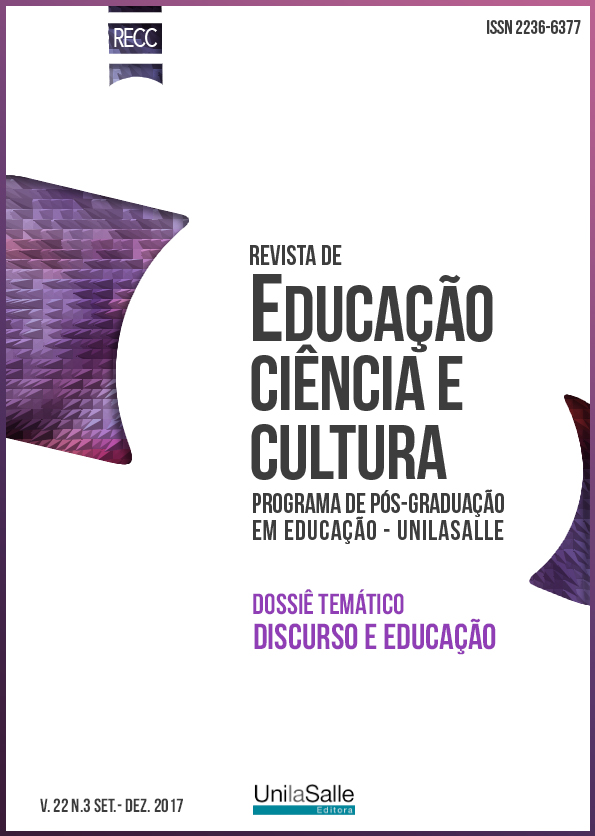Memory evocation: what is implied in the production of meanings in the School without Political Party Project
DOI:
https://doi.org/10.18316/recc.v22i3.3743Keywords:
Memory, Subject, Discourse Analysis.Abstract
Considering the phenomenon of almost synchronized emergency, at the legislative chambers of municipal, state and federal levels, of law projects related to the regulation of contents in the school curriculum in 2016, this text purposes to analyze the discourse of the Project of Statutory Law n.º 221/2016, processed at the City Council of Joinville, north of Santa Catarina State, and better known in other cities as School Without Political Party. Perceiving that across Brazil these projects were promoted by the non-governmental organization (NGO) School Without Political Party, the analysis profile also extended to the justification text of the law project draft available at the city councils by the NGO. These analyses happened in the context of public debates about the referred law in the environment of teachers’ basic training and used the tools of the discourse analysis (DA) of French lineage based on the tradition of Michel Pêcheux and on the works of Eni P. Orlandi in Brazil. It is important to remark that this analysis’ development had three objectives: the first one, related to teaching, in teacher training, a possibility of systematized reading practice, through the use of a theoretical device of interpretation; the second one, associated to the political commitment of teaching in using the tools of research in favor of policies that defend the democratic teaching practices; and the third one, marked by the intention to evidence the silent evocation of the memories of an authoritarian State. In this situation, we selected the tripod subject, context and language of the DA to interpret the proposition of law project and, consequently, to identify an implicit memory that silently intends to become hegemonic producing seductive meanings to parents, teachers and other supporters of the proposal.
Downloads
Published
Issue
Section
License
Authors must submit their manuscripts to be published in this journal agree with the following terms:Authors maintain the copy rights and concede to the journal the right of first publication, with the paper simultaneously licensed under the License Creative Commons attribution that permits the sharing of the paper with recognition of authorship and initial publication in this journal.
Since the articles are presented in this journal of public access, they are of free use, with their own attributions for educational and non-commercial purposes.
The Periodic Journal of Education, Science and Culture in http://www.revistas.unilasalle.edu.br/index.php/Educacao was licensed with a Creative Commons - Attribution - Noncommercial 3.0 Not Adapted.


